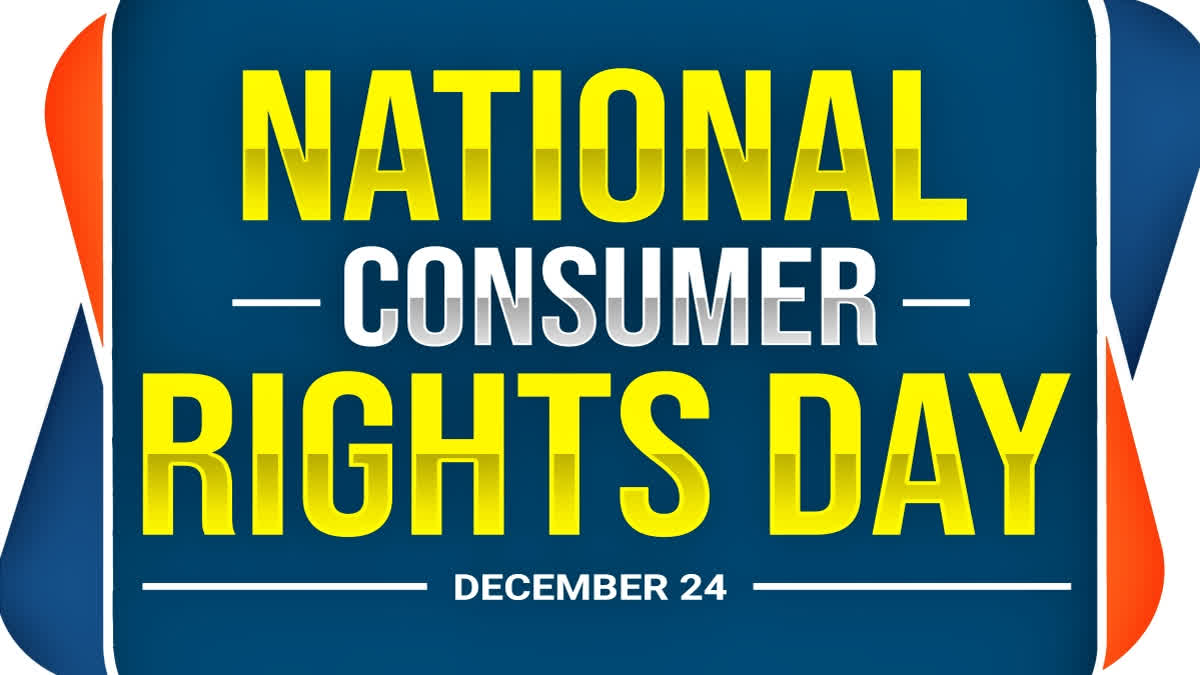Hyderabad: National Consumer Rights Day, observed annually on December 24, holds significance in emphasising the consumer movement's importance and disseminating awareness regarding the rights and responsibilities bestowed upon every consumer.
Consumer Protection Act, 1986: This date is particularly noteworthy as it marks the enactment of the Consumer Protection Act of 1986, aimed at providing consumers with effective safeguards against exploitation, including defective goods, deficient services, and unfair trade practices.
History: The Consumer Protection Bill underwent passage in both Houses of Parliament in 1986, receiving the President's assent on December 24 of the same year and subsequently became an act. This legislative milestone led to the establishment of National Consumer Day, serving as a reminder of the critical nature of consumer rights.
Significance: The Consumer Protection Act acts as a cornerstone, offering provisions for compensation for consumer grievances, thereby safeguarding and empowering consumers to vocalise concerns related to inadequacies and flaws in goods and services. The act elucidates six fundamental consumer rights granted to all Indian citizens, accompanied by five corresponding responsibilities each consumer should fulfil.
Six Fundamental Consumer Rights: The rights granted to consumers include protection from harmful products or services, the right to information about the quality and price of goods and services, access to a variety of goods and services at competitive prices, a voice in consumer forums, protection against unfair trade practices, and the right to consumer education.
Consumer Protection Act, 2019: In a significant stride towards consumer protection, the Consumer Protection Act of 2019 was enacted, replacing its predecessor from 1986. This recent legislation, effective in July 2020, introduced the Central Consumer Protection Authority (CCPA) entrusted with the promotion, protection, and enforcement of consumer rights.
Who is a consumer? The Act defines a consumer as an individual who purchases goods or avails services for personal use, excluding those obtained for resale or commercial purposes. This definition spans transactions across various modes, both offline and online, such as electronic means, teleshopping, multi-level marketing, or direct selling.
Misleading advertisements: To curb misleading advertisements, the CCPA is empowered to levy penalties on manufacturers or endorsers, ranging up to Rs 10 lakhs with a maximum imprisonment of two years for a false or misleading advertisement. Subsequent offences may incur fines up to Rs 50 lakhs and imprisonment of up to five years. The CCPA can also prohibit endorsing specific products or services for up to three years for repeat offences.
Grahak Raja: The consumer protection framework is aptly encapsulated in the phrase 'Grahak Raja' or customer became king. With the advent of online shopping, renowned brands are readily accessible to consumers globally. However, amidst the benefits of market competition, a robust consumer rights protection system is crucial to prevent any form of exploitation. Consumer Grievance Redressal Forums play a pivotal role in addressing consumer concerns, providing a mechanism for conflict resolution and safeguarding consumer interests.



